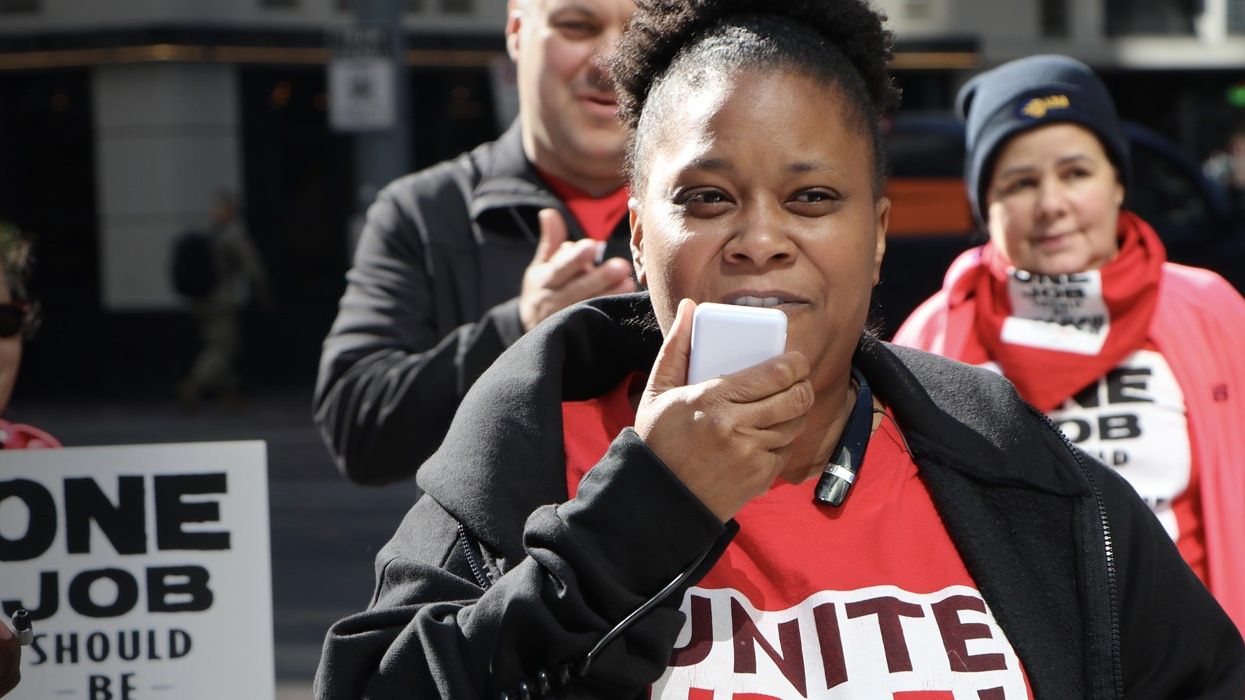Hotel Workers Strike Vote 2024
AROUND 13,500 UNIONIZED hotel workers in Boston, Honolulu, Providence and San Francisco plan to hold strike authorization votes on August 6 at hotels franchised by Hilton Hotels Corp., Hyatt Hotels Corp., Marriott International and Omni Hotels & Resorts as their contracts near expiration. Workers at 125 hotels, represented by UNITE HERE, are demanding higher wages, fair staffing and workloads, and the reversal of COVID-era staffing cuts.
The union, UNITE HERE, represents workers in hotels, casinos, and airports across the U.S. and Canada.
“Momentum is building for strikes this year because workers are at a breaking point while the hotel industry is making record profits,” said Gwen Mills, UNITE HERE’s international president. “Hotel companies took advantage of COVID to make severe cuts to staffing and guest services, and now workers say that their jobs are more painful than ever. Meanwhile, wages aren’t enough to cover the cost of living, and many workers have two or even three jobs.”
“This is a fight about the future of the industry for guests and workers alike, and our members are putting the hotels on notice that they’re ready to strike for what their families need,” he said.
According to the union, if workers authorize strikes, they could begin any time after contracts expire. Contracts in some cities have already expired, while others will expire in the coming weeks.
The union said the strike vote announcements follow mid-July protests in 10 cities as contract negotiations drag on. More than 40,000 hotel workers with UNITE HERE have contracts up for renegotiation this year in over 20 cities across the U.S. and Canada, with additional strike votes potentially forthcoming.
‘Respect Our Work’
The U.S. hotel industry’s gross operating profit was 26.63 percent higher in 2022 compared to 2019, but hotel workers report heavy workloads, reduced hours and wages that are insufficient to cover the cost of living, the union said. Many hotels nationwide have retained COVID-era service cuts, including understaffing, ending automatic daily housekeeping and reducing food and beverage options. In the U.S., hotel staffing per occupied room decreased by 13 percent from 2019 to 2022 and by 32 percent from 1995 to 2022.
Workers are calling on the hotel industry to “Respect Our Work” and “Respect Our Guests” by raising wages, reversing staffing cuts that have led to challenging working conditions, and ensuring the protection of guest services and amenities, the statement said.
“I sleep with pain, I wake up with pain, I go to work with pain,” said Jianci Liang, a housekeeper at the Hilton Park Plaza in Boston for seven years. “Since we returned to work after COVID, there are about 20 fewer Room Attendants on the regular schedule. Without the proper staffing, my job is getting harder and harder. When the rooms are sold out, we have to cover the work of the missing people. I have no choice but to work, because it’s hard to save money or set aside funds for an emergency,” she said.
“I’m voting yes to strike because by the time that I come home from work, I’m so exhausted from taking care of guests all day that I’m too exhausted to take care of my own family,” said Wendy Perez, a front desk agent at the Waikiki Beach Marriott for 36 years. “We need staffing that ensures fair workloads and quality service.”
Meanwhile, the UNITE HERE members secured record contracts following rolling strikes at Los Angeles hotels last year.
"We are disappointed that several UNITE HERE locals have chosen to take strike votes," a Hyatt spokesperson told Reuters. Hyatt has contingency plans in place to ensure its hotel operations are not affected by a strike, while Hilton stated it maintains a cooperative and productive relationship with the union, the Reuters report said.
Meanwhile, the National Labor Relations Board recently withdrew its appeal of a Texas judge’s ruling that blocked its joint employer rule, which would have expanded shared responsibility for employees between franchisers and franchisees. Industry associations including AAHOA and AHLA have welcomed NLRB’s decision to withdraw its appeal citing that rule was “designed to force franchisers to the negotiating table with workers they do not actually employ to increase unionization.






